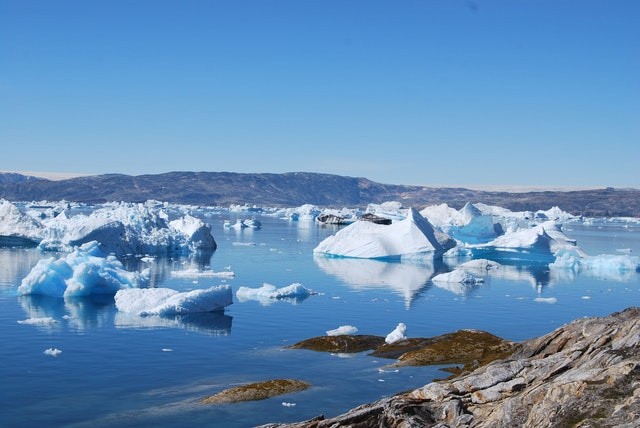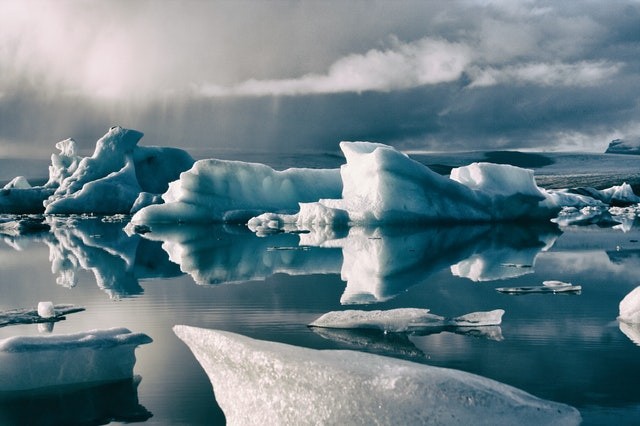The tipping point for irreversible global warming may have already been provoked, the expert who led the biggest-ever tour to the Arctic warned on Tuesday.

Sea Ice in the Arctic
Markus Rex said: "The vanishing of summer sea ice in the Arctic is one of the initial landmines in this minefield, one of the tipping points that we set off first when we push warming very far, and one can essentially inquire if we haven't already trampled on this mine and already set off the beginning of the explosion."
Rex led the biggest mission in the world to the North Pole, an expedition that involves 300 scientists from 20 countries. In October, the expedition got back to Germany after 389 days drifting through the Arctic, taking home devastating evidence of a dying Arctic Ocean and warnings of ice-free summers in just decades.
The $165-million (140-million-euro) expedition also brought 150 terabytes of data and over 1,000 ice samples back. Summarizing their initial discoveries, Rex said scientists discovered that the Arctic sea ice had retreated "more rapidly in the spring of 2020 than since the beginning of records" and that "the dispersal of the sea ice in the summer was only half as great as decades ago."
Ice Sheet Formation
The ice was only partly as thick and temperatures measured 10 degrees higher than during the Fram expedition tackled by tourers and scientists Fridtjof Nansen and Hjalmar Johansen in the 1890s.
Due to the smaller sea ice surface, the ocean was able to take in more heat in the summer, in turn implying that ice sheet formation in the autumn was slower than normal.
Urging quick action to halt warming, Rex added: "Only evaluation in years to come will let us determine if we can still rescue the year-round Arctic sea ice through vigorous climate protection or whether we have already passed this crucial tipping point in the climate system."
In 2015, world leaders had agreed under the Paris agreement to take action to check global warming to well less than 2 degrees Celsius, and to 1.5 degrees Celsius preferably, compared with pre-industrial levels.

Analysis of the Findings
A specialist in sea ice physics, Stefanie Arndt, said it was "painful to know that we are likely the last generation who can be faced with an Arctic which still has a sea ice cover in the summer."
Arndt while describing observations of seals and other animals in the habitat of polar said this sea ice cover is shrinking gradually and it is an essential living space for polar bears.
The data gathered during the expedition included readings on the atmosphere, sea ice, ecosystems, and ocean. Several hundred scientific publications analyzing the discoveries are expected to be released between 2021 and 2023.
Related Article: Did you Know? Arctic Sea MIGHT Already be Ice-Free by 2024
For more news, updates about the Arctic and similar topics don't forget to follow Nature World News!
© 2026 NatureWorldNews.com All rights reserved. Do not reproduce without permission.





